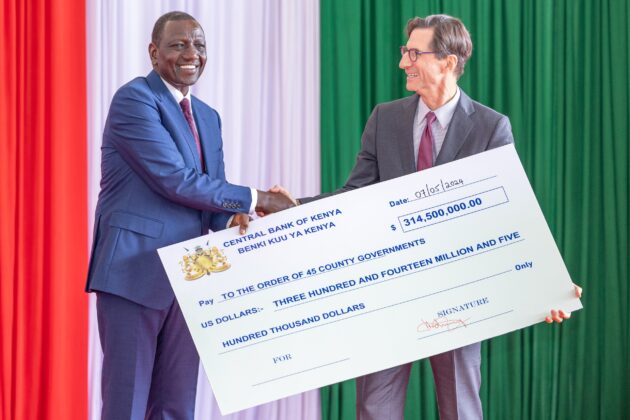
Ruto says Sh46.5bn from World Bank to fund the second phase of Kenya Urban Support Programme » Capital News
NAIROBI, Kenya May 7 – President William Ruto has announced Sh46.5 billion funding support from the World Bank for the second phase of Kenya Urban Support Programme(KUSP) launched on Tuesday.
President Ruto stated that the second phase of the programme, which targets to strengthen the capacity of urban areas by improving settlement infrastructure will be implemented in 77 municipalities across 45 counties.
He affirmed that the programme fully aligns with his administration’s affordable housing project seeking to improve infrastructure, storm water management and sanitation.
“There are 1410 informal settlements in Kenya with no proper road network, poor sanitation, no electricity but this program will help decongest major cities by creating real alternative centres for growth in counties,” he stated.
The head of state urged the county government implementing the program to ensure they utilize the funds in a responsible manner for maximum benefit as they prioritize various strategies of increasing their own source revenue.
He also called upon the county government to allocate a greater portion of land to urban development initiatives as Urban centres contribute over 70 percent of the Nation’s GDP.
“We all agree that our urban development strategy requires sustainable financing, but this has not been forthcoming at the levels expected. It is crucial therefore that the World Bank’s Sh 46.5 billion funding for the Second Kenya Urban Support Programme is utilized responsibly because this money is a loan that we must pay,” he said.
Government identified 300 urban areas where 220 of them require development investment in order to achieve the urbanisation policy objective.
The program will oversee infrastructure expansion, connectivity enhancement, overall accessibility, safety and security improvement in the 45 benefiting counties.
It also seeks to enhance creation of social amenities to integrate refugees in Kakuma and Dadaab camps in both Turkana and Garissa counties with the host communities under the government’s Shirika plan.
The integration will help enhance the livelihoods of communities in the refugee camps to ensure they have proper access to good road networks and improved water and sanitation services.
The first phase of KUSP program covered 59 municipalities across the country.
